High School and University Educators Strategize on Ways to Strengthen Disarmament Education in Nepal
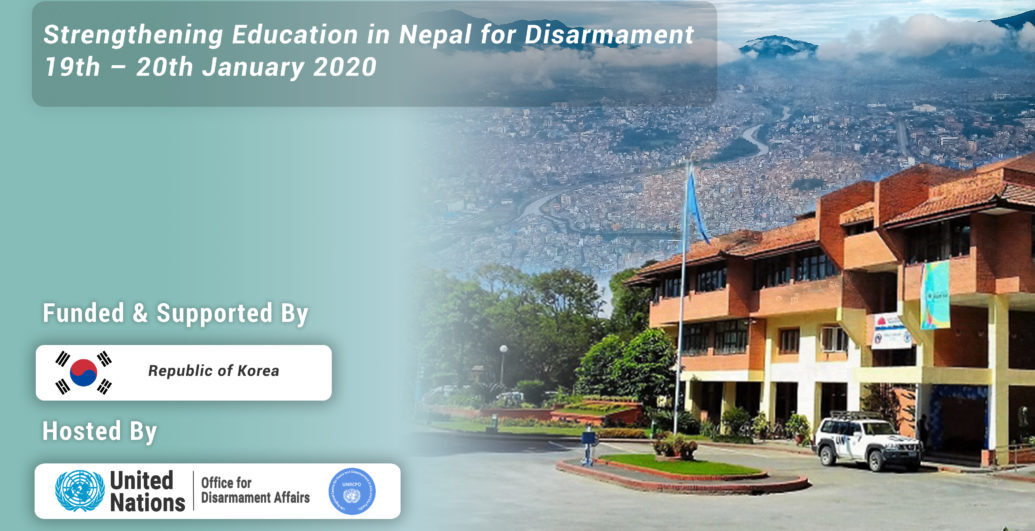
- Session 1. Introduction What is Disarmament Education
- Session 2. Humanitarian Consequences of the Use of Weapons
- Session 3. Disarmament in A Wider Context of Peace, Security and Development
- Session 4. CSO in Disarmament
- Session 4. CSO in Disarmament
- Session 5. Guiding Questions and Background Notes for Group Discussion
- Session 6. Focus Group Discussions
High school and university educators strategize on ways to strengthen disarmament education in Nepal
Start Date: Jan 19, 2023
End Date: Jan 20, 2023
On 19 and 20 January 2023, the (UNRCPD) convened a workshop for high school and university educators in Nepal on “Strengthening Education in Nepal for Disarmament”, in cooperation with the , a civil society organization in Nepal, with financial support from the Republic of Korea.
The purpose of this event was to assess the level of disarmament education currently being delivered to students in secondary and tertiary education in Nepal; to raise awareness on the meaning and importance of disarmament education while also introducing the available tools and opportunities that are provided by the United Nations Office for Disarmament Affairs (UNODA) to engage in disarmament issues; and to identify potential areas of cooperation and support for future disarmament education activities.
On the first day, Ms. Ji Yeon Rho, who coordinated the workshop, set the stage by introducing disarmament education in the wider context of peace education, explaining the role and work of the UNODA in this regard. She also provided an overview of the work of UNRCPD, highlighting previous projects on peace and disarmament education conducted in Nepal and Asia and the Pacific.
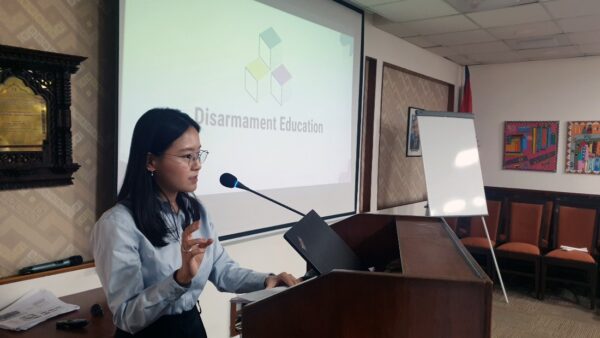
Ms. Ji Yeon Rho, project coordinator of the workshop, presented an overview of disarmament education and the work of the UNODA in this area.
In the next session, Mr. Aaron Junhoung Yoo, Deputy Director of UNRCPD, informed teachers on global disarmament, arms control and non-proliferation efforts as they relate to weapons of mass destruction and conventional weapons, the humanitarian consequences of the use of various weapon types, as well as the relevant international instruments, treaties and agreements governing them. The third session focused on how disarmament fits into the wider context of peace, security and development, underscoring the interlinkages between disarmament and the Sustainable Development Goals as well as cross-cutting issues such as youth and gender.
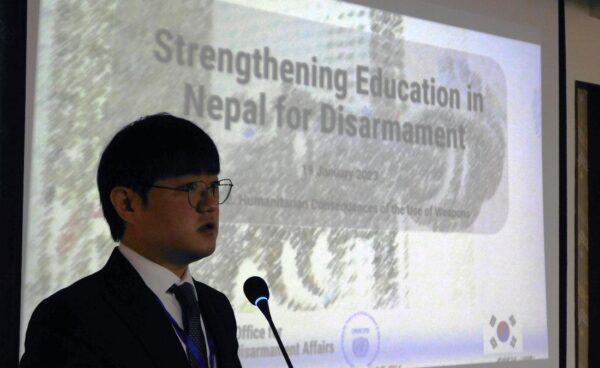
Mr. Aaron Junhoung Yoo, Deputy Director of UNRCPD, presented on the humanitarian consequences of weapons of mass destruction and conventional weapons.
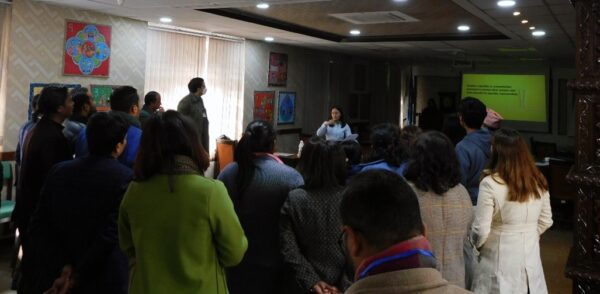
Participants joined in an exercise to understand the linkages between gender and disarmament and arms control.
Next, civil society organizations (CSOs) operating in Nepal introduced their work with Nepalese youth on peace and disarmament issues and explained the role of CSOs in the field of peace, security, and disarmament. Speakers from the presented their research and a recent project that used art as a means for promoting dialogue amongst high school students on issues relevant to peace, disarmament and social harmony, inspiring participants to seek creative avenues in promoting conversations around peace and conflict.

Mr. Prakash Bhattarai and Ms. Shradha Kadhka from the Center for Social Change shared their creative work on promoting a culture of peace and dialogue through art.
Ms. Pinky Rana introduced her work within Nepal to reduce violence against women and girls and promote the integration of small arms and light weapons control in National Action Plan on UNSCR 1325 (2000) on Women, Peace, and Security. Her presentation was followed by a lively discussion with participants on armed violence and its consequences within the context of Nepal, including during the civil war.
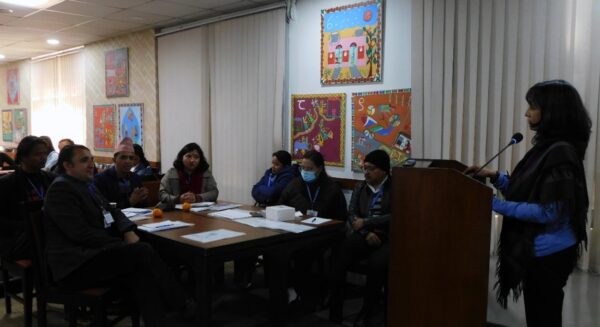
Ms. Pinky Rana engaged in a lively discussion on the consequences of armed violence in the context of Nepal’s civil war.
The first day concluded with a group exercise where participants were tasked with designing detailed and creative plans for integrating disarmament education into high school education programmes in Nepal. Amongst the ideas presented were using literature in English classes to promote a deeper understanding of the humanitarian consequences of the use of force, including witness testimonies in social studies curricula, and creating programmes within art and music studies to build healthy coping mechanisms for trauma and emotions. It was emphasized throughout that it is also important to dedicate resources across the board to promote the values of respect for diversity, tolerance of differences and peaceful conflict resolution.
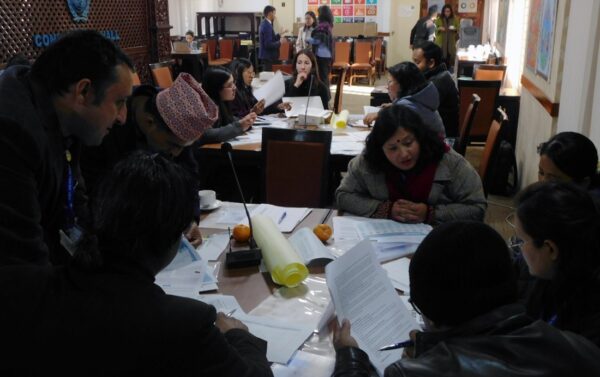
Participants discussed areas of convergence in which disarmament education can be integrated within formal and non-formal education in Nepal.
On day two, educators in tertiary education in Nepal joined the workshop, which started with a presentation on the meaning and importance of disarmament education, the history of peace and disarmament education in Nepal and UNRCPD’s previous involvement with developing . Following the introductory presentation, participants were given a series of guiding questions aimed to help assess the level of disarmament education currently being provided in universities, and to identify areas for cooperation between faculty, professors and UNRCPD. The insights from the discussion will provide a basis for designing future disarmament education programmes and activities by UNRCPD, in close cooperation with the network of academics willing to champion the cause of disarmament education in Nepal.

